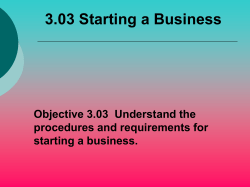
Kenanga Blue Chip Fund
Kenanga Blue Chip Fund 3-year Fund Volatility 8High .3 (A fund under Kenanga OneAnswer™ Investment Funds) January 2015 Lipper Analytics 15 Dec 2014 Data as at 31 December 14 FUND OBJECTIVE Aims to achieve long-term capital growth through investments in companies that have relatively larger market capitalization. FUND PERFORMANCE (%) NAV to NAV Prices and Cumulative Return Over The Period (%) Fund Category/Type Equity / Income & Growth Lipper Fund Category Equity Malaysia Launch Date 23 April 2004 Trustee CIMB Commerce Trustee Berhad Lipper Leaders Benchmark FTSE Bursa Malaysia Top 100 Index CUMULATIVE FUND PERFORMANCE (%) Period Fund Benchmark 1 month -3.23 -3.39 6 months -4.21 -6.83 1 year -1.74 -6.17 3 years 15.40 14.54 5 years 43.68 42.17 Since Launch 147.32 102.78 Designated Fund Manager Ngo Siew Teng Sales Charge Max 6.5% Annual Management Fee 1.55% p.a. Period 2014 2013 2012 2011 2010 Initial Offer Price RM0.50 per unit FUND SIZE RM20.00 million NAV PER UNIT RM0.6990 CALENDAR YEAR FUND PERFORMANCE (%) Fund Benchmark -1.74 -6.17 14.54 11.39 2.54 9.60 1.44 1.94 22.73 21.76 Source: Lipper 25-Jun-07 7-Feb-07 29-Sep-05 DISTRIBUTION HISTORY Gross Distribution RM Yield (%) 3.14 sen 4.74% 3.09 sen 6.13% Unit Split 1:2 - HISTORICAL FUND PRICE Highest (RM) Lowest (RM) 1 2 3 4 5 TOP EQUITY HOLDINGS (% NAV) TENAGA NASIONAL BHD MAYBANK BHD TELEKOM MALAYSIA BHD DIGI.COM BHD IJM LAND BHD 9.20% 8.75% 4.77% 4.75% 4.65% Source: Kenanga Investors Berhad Since Inception Date RM 0.7839 RM 0.3573 22-Jun-07 29-Oct-08 8.3 ASSET ALLOCATION SECTOR ALLOCATION (% NAV) 1.1% December 11.60% 2.4% 88.40% 3.3% 3.9% November 7.40% 4.7% 92.60% 6.9% 8.6% October 7.20% 11.6% 92.80% 23.1% 34.4% Liquidity Equity Source: Kenanga Investors Bhd Source: Kenanga Investors Bhd REVIEW Market Review Malaysian equities fell sharply in December as oil prices continue to thread lower which sparked a selloff in oil and gas names. The KLCI fell as much as 6.4% at its lowest point in mid-Dec before narrowing the losses, ending the month 3.3% lower. The sell-off spread to the small-mid cap space and investors were quick to take profits on outperforming small-mid cap names, causing the FBM Small Cap index to plunge by 8.7% in December. Foreign investors turned bearish on oil producing economies and markets with significant exposure to the oil and gas sector like Malaysia. As a result, the Malaysian Ringgit weakened from RM3.4/US$ to RM3.5/US$, whilst the central bank reserves fell to US$120.7b in December from US$125.7b in November. Fund Review The Fund outperformed its benchmark for the month of December, registering a negative return of 3.23% against FBM100 index negative return of 3.39%. The Fund outperformance was mainly attributable to favourable stock selection. OUTLOOK Market Outlook We think the recent market volatility is set to continue as investor sentiment remains jittery given the sudden collapse in crude oil and commodity prices. Fund flows out from emerging markets including Malaysia back to more promising developed markets like the U.S will continue to be a major trend in 2015. We believe crude oil prices are likely to stay depressed for a longer while before rebounding possibly beyond Q2 as supply adjustments take place with production cut backs. Therefore, oil and gas stocks are unlikely to re-rate back to previous levels in the immediate term. Nonetheless, we believe values have started to emerge in the broader market after the sharp sell down in the past 2 months, warranting a relook at selective sectors including the small-to-mid cap growth stocks. Fund Strategy Given the lack of catalysts in the immediate term, we have maintained a fairly high level of cash at around 20-25% across all funds. However, the recent sell down has created some pockets of values, and we will be deploying our excess cash, opportunistically in the next 1-3 months, especially on dips. We remain positively biased to growth sectors such as exporters, manufacturers and construction which offer quality and visible growth. Meanwhile, defensive stocks vis-à-vis the market on the other hand pose higher downside risks, as yield spreads have narrowed substantially recently. Therefore, our stock picks will favour growth vis-à-vis defensive trades. Website : www.KenangaInvestors.com.my E-mail : investorservices@kenanga.com.my Toll Free Line : 1-800-88-3737 Based on the fund’s portfolio returns as at 15 December 2014, the Volatility Factor (VF) for this fund is 8.30 and is classified as “High”. (Source: Lipper). “High” includes funds with VF that are above 10.560 and less than or equal to 12.975 (source: Lipper). The VF means there is a possibility for the fund in generating an upside return or downside return around this VF. The Volatility Class (VC) is assigned by Lipper based on quintile ranks of VF for qualified funds. VF is subject to monthly revision and VC will be revised every six months. The fund’s portfolio may have changed since this date and there is no guarantee that the fund will continue to have the same VF or VC in the future. Presently, only funds launched in the market for at least 36 months will display the VF and its VC. The Master Prospectus dated 30 June, 2014 has been registered with the Securities Commission Malaysia, who takes no responsibility for its contents. A copy of the Master Prospectus and the product highlights sheet (PHS) is obtainable at our offices. Application for Units can only be made on receipt of application form referred to in and accompanying the Master Prospectus and PHS. Investors are advised to read and understand the relevant master prospectus and consider the fees and charges involved before investing. Unit prices and distributions may go down as well as up. Where a distribution is declared, investors are advised that following the distribution, the NAV per unit will be reduced from cum-distribution NAV to ex-distribution NAV. A Fund’s track record does not guarantee its future performance. Investors are advised to read and understand the contents of the unit trust loan financing risk disclosure statement before deciding to borrow to purchase units. The Manager wishes to highlight the specific risks of the Fund are market risk, stock-specific risk, liquidity risk and derivatives/structured products risk.
© Copyright 2025

















